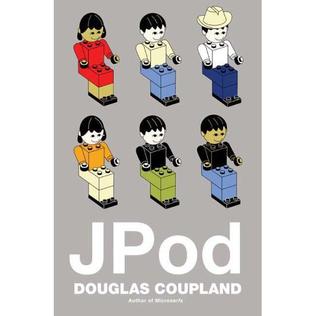Generation JPod
Sat 03 June 2017 by Jim PurbrickI’ve just got back from Kaş where I spent a lovely few days celebrating Pinar and Simon’s wedding and while there spent a few hours reading Now We Are 40: a thoughtful and entertaining look at everything from house music to house prices from the perspective of Generation X.
While a lot of the book was familiar, I was surprised how different my experience has been. I don’t feel part of the last generation who grew up without digital technology, but part of the first generation to grow up with it.
I learned to program at school, started writing code professionally at 18 and haven’t stopped. I didn’t work many McJobs, but have worked in many JPods (and seen friends move to Vancouver to work in the games industry there). I may have bought my first smartphone when I got my first job, but my life has felt digital from the start.
One focus of “Now We Are 40” is the changes in music over the last few decades from the pre-digital rave scene to the current over-saturation of recorded music available from streaming services which has rendered selling recorded music unsustainable for almost everyone. Food and drink followed on as the next big thing, something I’ve experienced personally as my brother-in-law morphed from hip hop pimp to sommelier. You may not need to buy recorded music any more, but you still need to eat and drink.
In fact raves, clubs, cafes and restaurants are mostly a place to hang out. When people were incredulous at the idea of spending real money on virtual goods Cory and I used to point out that most of what you were buying in Starbucks was not coffee or service, but an experience just as ephemeral as a virtual hat.
Virtual worlds like Second Life and now Social VR showed that you could digitise the hanging out too. It’s already proving to be an invaluable lifeline to people who find it hard to hang out in real life. While festivals, clubs and gigs are where musicians are increasingly making money in real life, they also work in virtual worlds. I first saw the Qemists, now one of my favourite bands, on the Ninja Tune stage at a festival in Second Life organised by Aleks. Later, Leon poked me on Facebook to ask me to advise his new tech startup because, after music and food, technology is apparently the new rock and roll.
For most of my career I have been building experiences which compliment the real world and working at Facebook is the first time that I have felt like I might be working somewhere that has been disrupting existing industries. The view that Facebook is an existential threat to the open web (a prospect that Bryan likens to the bug sucking the wildebeest dry) is relatively widespread and I remember a circle forming around me when I told Aral and some of the other web developers at a Skiff Christmas party that I was going to work there.
In fact I’ve spent much of the last few years working on open source tools that will benefit the wider web while also being able to support my family more sustainably than I could working in a games industry where redundancies and closures were more common than Philip Rosedale being asked how much he would sell Second Life for at Davos.
While the software industry seems to be constantly changing with new tools, languages, platforms and frameworks arriving all the time, a deeper disruption is potentially coming to the business of writing code for a living. Increasingly large parts of software systems are learned by machines rather than programed by humans. As Jeff Dean at Google observed: “If Google were created from scratch today, much of it would be learned, not coded.” When I started studying Computer Science in Nottingham my dad advised me not to become just a computer caretaker. It’s very possible that I may end up becoming a computer trainer instead.
If my experience has felt so radically different despite being only a few years younger than Tiffanie Darke - if I feel more Generation JPod than Generation X - are we already at the point where technological change is rendering the use of 15-20 year long generations obsolete?
The difference may also just be because “The future is already here — it’s just not very evenly distributed.”. If you were connecting early modems to BBSes at the start of the 90s it was easy to become a digital native. If you were busy dancing to Charly in a warehouse you may have had to catch up later.
One thing that is clear is that we need to work out how our increasingly disrupted and automated society will function. If software is eating the world and software is increasingly learned, then we’re going to have to find a way for people to flourish in that future. Brexit and Trump show what happens when people are worried about their place in the world. I’d like to see my children grow up in a future which is closer to the The Culture than Mad Max. There’s a general election in the UK next week. My next plan is to vote for a more progressive future.
 The Creation Engine No. 2
The Creation Engine No. 2
